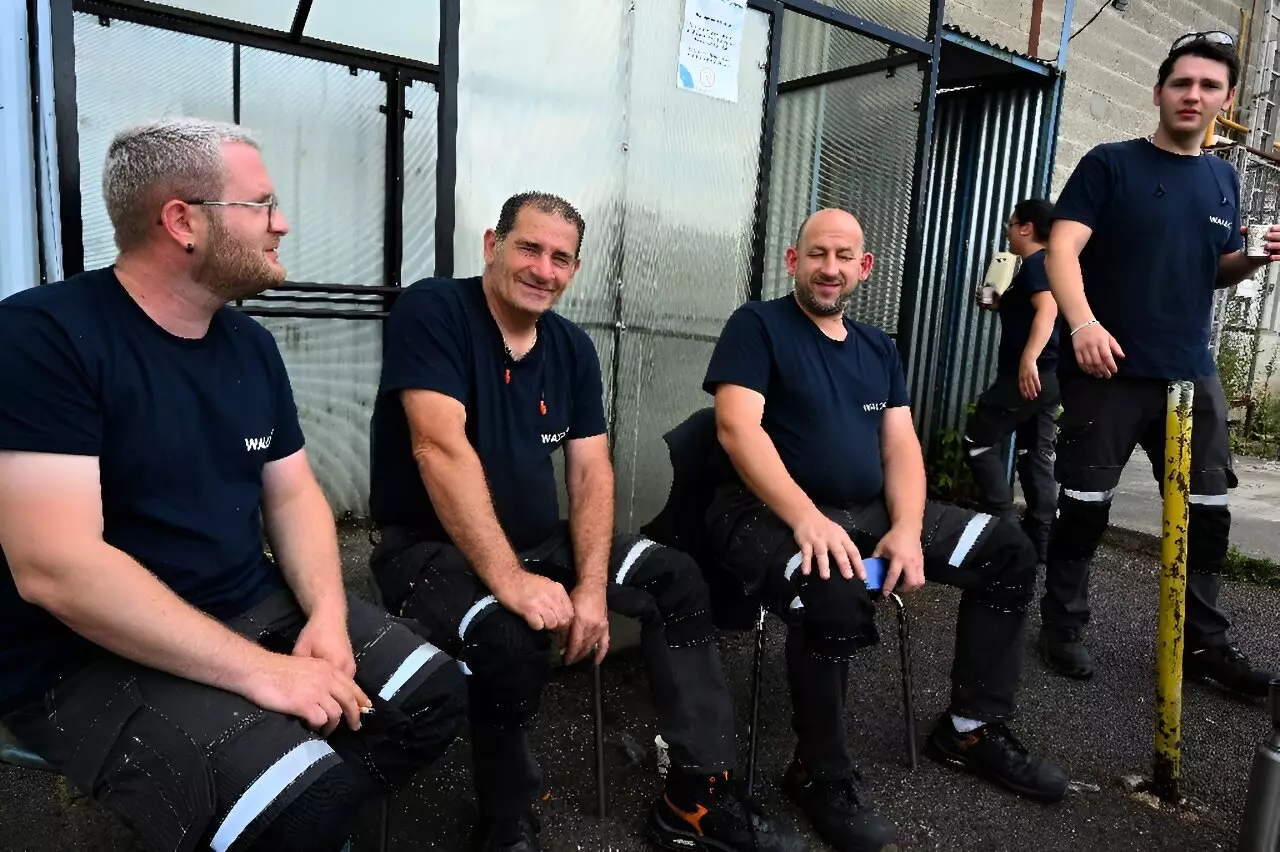As France moves towards phasing out new combustion engine cars by 2035, the auto industry in the country is experiencing a mix of optimism and pessimism. While regions like the north of France are seeing the emergence of a “Battery Valley” with the construction of battery gigafactories, workers at parts suppliers in other areas are growing increasingly concerned about their future. With the sale of new petrol and diesel engine cars set to be banned in Europe in the next decade, the industry that currently employs around 200,000 people in France is facing a significant transformation.
In parts suppliers like the facility in Vouziers in France’s Ardennes region, employees are feeling the impact of the transition to electric vehicles. The facility, which produces connecting rods for tractors and trucks, is not directly threatened by the shift to EVs. However, the demand for transmission differential housings and engine manifolds is expected to undergo significant changes. Despite the efforts of new ownership to turn around struggling firms, workers like Severine Person are facing the likely closure of their factory due to a shrinking order book.
In contrast to the challenges faced by parts suppliers, the north of France is witnessing a surge in the construction of battery gigafactories. Companies like the Automotive Cells Company (ACC) are investing in massive battery plants to support the transition to electric vehicles. These gigafactories, which are expected to create around 17,000 jobs by 2026, offer hope for workers in the industry. The joint venture between automakers like Stellantis and Mercedes, along with French energy giant TotalEnergies, is aimed at retraining employees and supporting the transition to electric vehicles.
Despite the potential job creation in battery gigafactories, the overall transition to electric vehicles poses risks for many workers in the French auto industry. A recent study by the French metalworking industry found that 65,000 jobs in the sector could be at risk by 2030 due to the shift to EVs. Economist Bernard Jullien predicts that the auto parts sector alone could see job losses of around 40,000 over the next decade. The industry is also facing concerns about offshoring production, with fears that manufacturers might shift production to countries with lower labor costs.
As the auto industry in France navigates the shift from combustion engine cars to electric vehicles, there is a growing need for support and transition measures. Trade associations like Plateforme automobile (PFA) are working to help workers retrain and adapt to the changing landscape. However, challenges remain in ensuring that the transition to electric vehicles is managed in a way that protects jobs and supports workers in the industry. With the potential for job losses and offshoring, it is crucial for policymakers, companies, and unions to collaborate on solutions that prioritize the well-being of auto workers in France.
The transition to electric vehicles in France presents both opportunities and challenges for workers in the auto industry. While the construction of battery gigafactories offers hope for job creation, there are concerns about the impact on traditional parts suppliers and the overall employment levels in the sector. As the industry faces significant changes in the coming years, collaboration and support will be essential to ensure a fair and just transition for all workers involved.


Leave a Reply